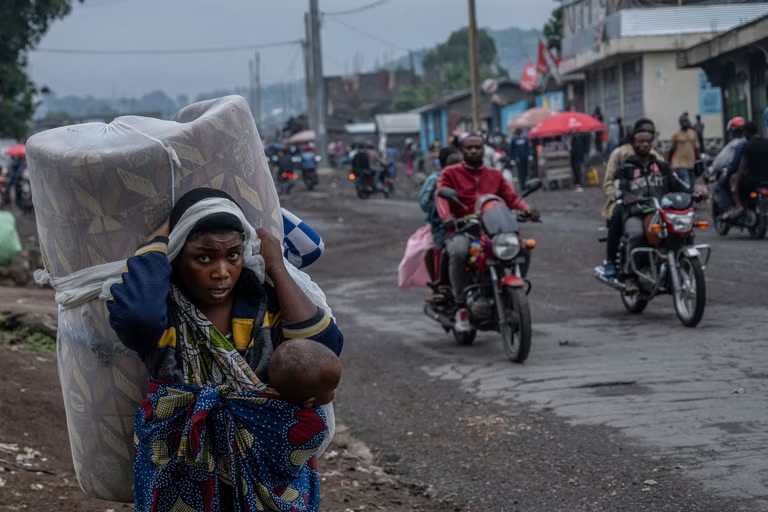Top Story: UN Report Accuses Rwanda of Backing M23 Rebels to Exploit Congo’s Critical Minerals
United Nations, New York – Rwanda provided “critical” military and logistical support to M23 rebels during their latest offensive in eastern Democratic Republic of Congo (DR Congo), enabling the seizure of key territories and giving Kigali access to lucrative mineral resources, according to a confidential United Nations report obtained by the Associated Press.
The report, submitted to the UN Security Council Sanctions Committee on Congo this week, details Rwanda’s alleged use of advanced weaponry, including armed drones, short-range air defense systems, and jamming technology, to support the M23 rebel group’s sweeping gains in North Kivu, including the strategic cities of Goma and Bukavu.
The U.N. experts concluded that Rwanda’s actions were part of a broader effort to “control territory and exploit natural resources” in the mineral-rich eastern DR Congo—resources essential to global industries from smartphones to fighter jets.
Mineral Smuggling at “Unprecedented Levels”
The report highlights a surge in illegal mineral smuggling, particularly of coltan (columbite-tantalite), from M23-controlled Rubaya mines in North Kivu into Rwanda. Once across the border, the minerals were allegedly mixed with Rwandan-origin ores and exported as domestic production.
“Evidence indicated increasing risk of cross-border fraud,” the report states, noting that coltan exports had reached unprecedented levels. It also implicates Boss Mining Solution Limited, a Rwandan company, in the trade, and challenges Rwandan claims of producing 8,000 to 9,000 tons of tantalum, tin, and tungsten annually—figures contradicted by independent geological studies, Rwanda’s own National Institute of Statistics, and the ITSCI traceability initiative.
A Global Resource Power Play
Eastern DR Congo produces about 40% of the world’s coltan, according to the U.S. Geological Survey, making the region strategically vital. The metals extracted from coltan—tantalum and niobium—are critical for mobile phones, jet engines, missile systems, and electric vehicle batteries.
Rwanda has consistently denied involvement in the conflict or the smuggling, but the U.N. report suggests otherwise. Rwandan President Paul Kagame, when asked about the allegations, dismissed the U.N. findings as outdated and disconnected from reality.
“The expertise they provide, the reports they write actually do not have anything to do with the situation itself,” Kagame told reporters Friday. “These reports were written long ago — when they were given the mission.”
Rwandan government spokesperson Yolande Makolo reiterated the country’s commitment to a U.S.-brokered peace agreement signed last month, saying on social media that “Rwanda is fully committed to its implementation.”
Humanitarian Crisis and War Crimes Allegations
The UN report also accuses both sides—Rwandan-backed M23 and Congolese forces with allied militias—of grave human rights violations. In M23-occupied areas, the report cites a “systematic campaign of repression,” including extrajudicial killings, torture, enforced disappearances, and raids on hospitals.
Meanwhile, retreating Congolese troops and allied pro-government militias have allegedly committed looting, sexual violence, and killings of civilians suspected of aiding rebels.
Despite Congo’s immense mineral wealth, over 70% of its population lives on less than $2.15 a day, according to global poverty benchmarks. The ongoing conflict in the east has triggered one of the world’s largest humanitarian crises, with more than 7 million displaced, including 100,000 people in just the past year.
Peace Deal Under Pressure
Though Rwanda and DR Congo recently signed a peace accord facilitated by the United States, the deal has been criticized for failing to include M23, the central rebel group in the conflict. Analysts warn that without M23’s participation and Rwanda’s accountability, lasting peace remains elusive.
Experts also raised concerns over the role of foreign powers, particularly the United States, in pushing peace efforts that critics say are motivated more by access to strategic minerals than by regional stability.
With the UN report expected to be made public soon, pressure is likely to mount on Rwanda, the DR Congo government, and international actors to address not only the violence—but also the economic interests fueling it.
